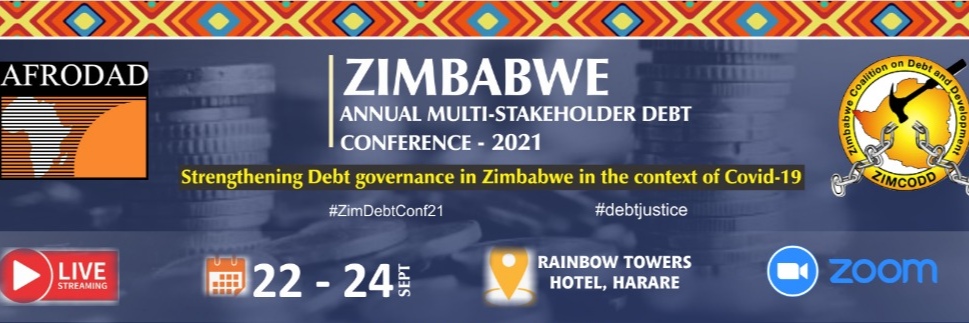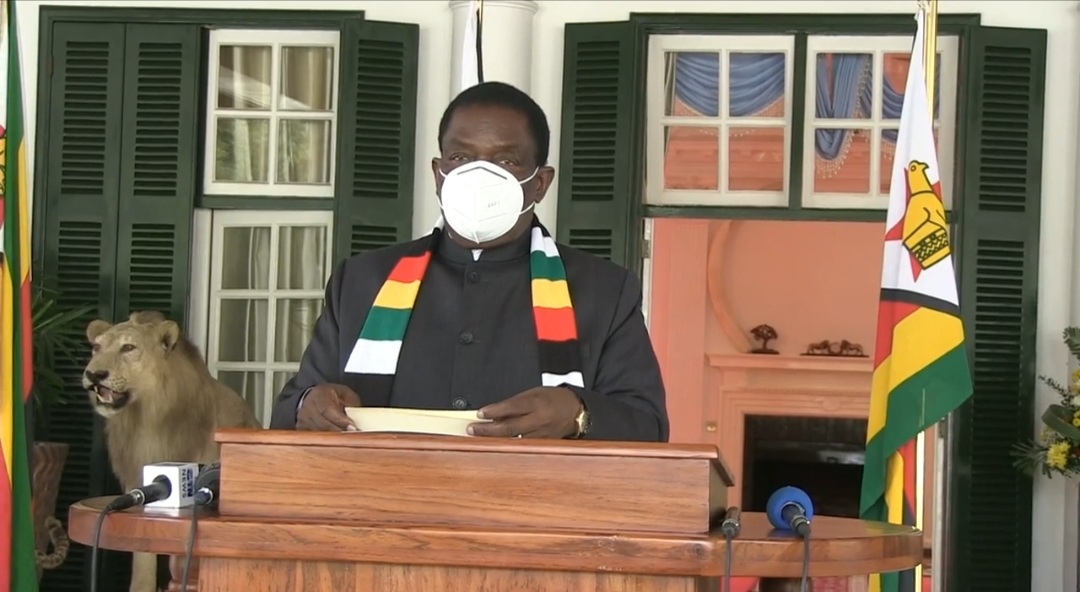Local experts seek solutions on Zim debt situation
Share

Harare (New Ziana) – Zimbabwe should pursue a multi-pronged approach to resolving its foreign debt situation, including restructuring and securing write-offs, a local think tank has advised.
In a presentation at the ongoing Zimbabwe Annual Multi-stakeholder Debt Conference in Harare, experts said government had to come up with a holistic debt management strategy.
The conference was organised by the African Forum and Network on Debt and Development (Afrodad) in collaboration with the Zimbabwe Coalition on Debt and Development, and drew participants from government, civic society, the private sector and academia.
According to the mid-term budget review, Zimbabwe’s external debt as of December 2020 was 71.2 percent of GDP at US$10.5 billion, while the domestic debt as of April, 2021 amounted to ZWL$20.9 billion.
External debt arrears alone amount to over US$6.5 billion, which is about 77 percent of total foreign debt.
The Labour and Economic Development Research Institute of Zimbabwe (LEDRIZ) told conference participants that going forward, the country needed a; “Combination of debt restructuring and write-offs to solve its arrears problem.”
It added that a; “Hybrid approach making use of both internal resources and some key elements of the HIPC (Highly Indebted Poor Countries Initiative) presented the best foot forward.”
LEDRIZ also called for accelerated re-engagement efforts with creditors for possible debt rescheduling while the country pursued domestic resource mobilisation to make token payments.
“A sustainable debt management framework should address the current debt problem whilst providing a lasting solution to future debt problems is one that recognises the debtor and creditor as equal partners,” the think tank said.
In his mid-term budget review, Finance and Economic Development Minister Professor Mthuli Ncube said treasury has, since March 2021, resumed quarterly token payments to creditors including the World Bank Group, the African Development Bank Group and the European Investment Bank.
“Token payments are part of the re-engagement process with the International Community in line with the Arrears Clearance & Debt Relief Strategy which is critical in regaining access to concessional financing from both multilateral and bilateral development partners. Payments to Paris Club Creditors will also begin in the second half of 2021,” he said then.
In a contribution focused on reducing debt accumulation while advancing infrastructure development, a University of Zimbabwe lecturer Dr Tawanda Zinyama said there was need to eradicate corruption to restore the integrity and transparency of public procurement systems.
“It is imperative for government to strengthen the legal framework governing unsolicited bids,” said Dr Zinyama.
“Clarity of the legal provisions on unsolicited bids will promote private sector initiated proposals to partner with local authorities in the delivery of infrastructure projects.”
Dr Zinyama said rather than relying on unsustainable borrowing; “Future local investment finance should rely on endogenous sources, that is, those produced by urban growth’s own mechanisms.”
On the link between climate change and public debt, another academic, Dr Joseph Tinarwo recommended the promotion of climate-sensitive budgeting, the strengthening of early warning systems, and establishment of climate risk insurance facilities, among other policy suggestions.
“Climate change results in fiscal deficits and increased public expenditure, and this usually results in domestic and external borrowing. For instance, weather-related catastrophes like cyclones, floods may result in increased public expenditures for the rebuilding of infrastructure or emergency relief transfers, in this manner triggering an imbalance in government budgets,” he said.
“Droughts negatively affect on the four pillars of food and nutrition security as well as undermining the provision of human rights-related goods and services. Climate change usually results in adverse economic impacts that shrink the tax base hence lowering tax revenues, increasing fiscal imbalances and leading to increased public debt.”
This is the Third Annual Zimbabwe Multi-Stakeholder Summit, and it runs from September 22-24. Among key expected outcomes of the conference are a communiqué with common position on the debt crisis and its impact on economic development.
It also seeks to raise lawmakers’ and citizens’ awareness of debt issues, promote adherence to public finance legislation; and enhance transparency on sourcing, allocation and utilisation of public resources.
New Ziana







